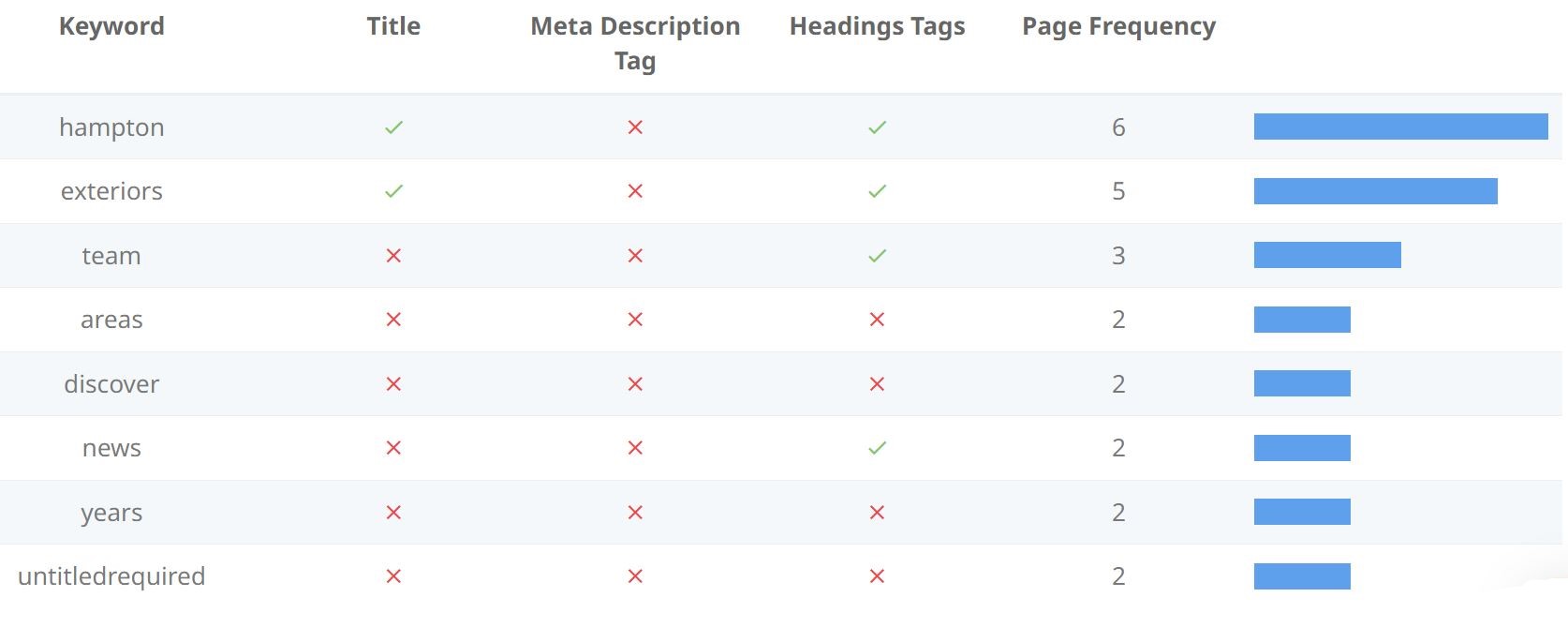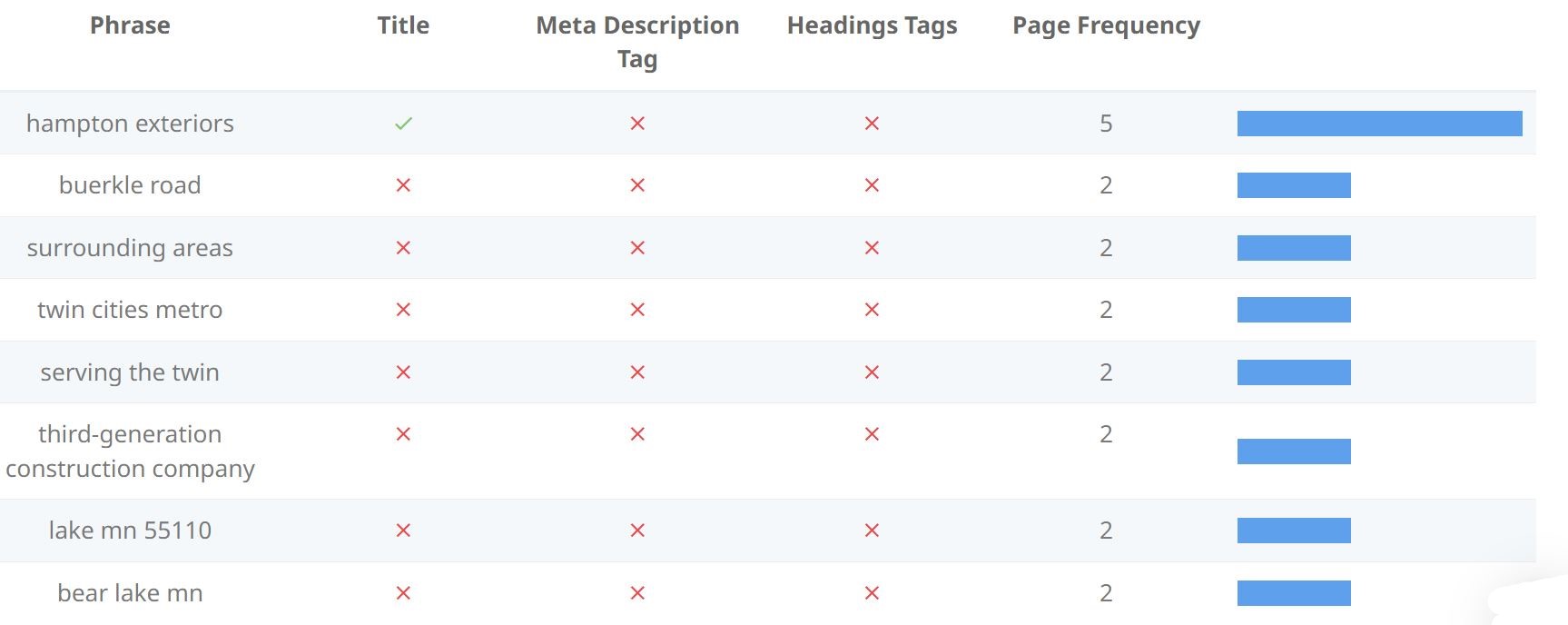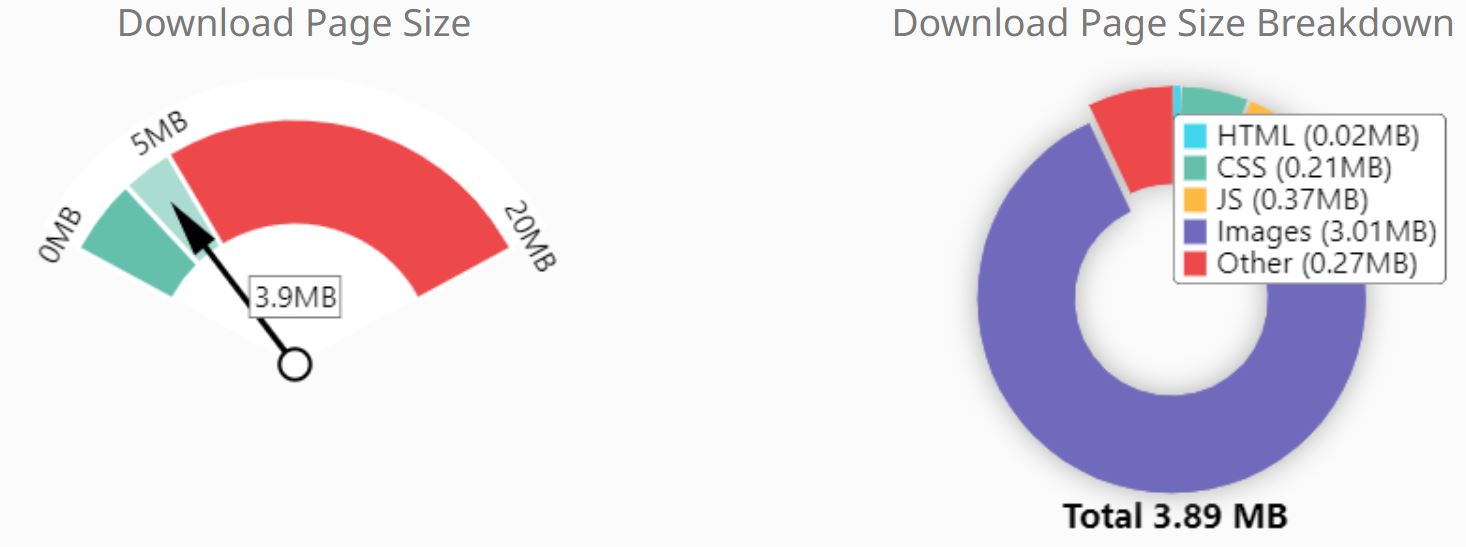


Generally a page should be targeted to rank for particular set of keywords or phrases. These keywords should be used with some consistency in page content (naturally and without keyword stuffing – DO NOT USE YOUR KEYWORDS MORE THAN 3 TIMES ON A PAGE) to maximize ranking potential for those keywords. This means these keywords should be present across the most important HTML tags (H!, H2, H3) of the page, and used with some frequency in the general page text content. The keyword consistency check illustrates the keywords we have identified appearing most frequently in these areas.
If the keywords and phrases identified don’t match your intended ranking keywords, and do not show a level of consistency, you should consider amending your core page content to better include these.
Page Load Speed refers to the amount of time it takes to entirely load a webpage in a user’s browser. Page Load Speed impacts a user’s experience on a website and can directly impact bounce rate and conversions. Additionally, Search Engines are making Page Load Speed a ranking factor.

Download Page Size is one of the biggest contributors to Page Load Speed, which can directly affect rankings, user experience and conversions. It is important to ensure your Download File Size is as small as possible by removing unnecessary files and minifying and optimizing others. 5MB is a good metric to strive for, though modern websites are gradually increasing in size.
Creating Social Profiles as well as linking to these from your website can help to build trust in your business and provide other mediums to nurture your customer relationships.